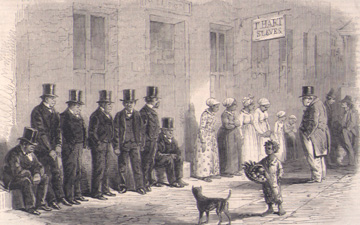New Orleans, Louisiana

New Orleans is, at present, the largest city in the state of Louisiana. It is a major commercial center and port for goods passing between the Mississippi River system and the Gulf of Mexico. The city was founded in 1718 by the Governor of Louisiana, Sieur de Bienville, on a spot chosen for its ready access to river and overland traffic. After a few years spent clearing the land and preparing the site for housing and ship traffic, the city officially became the colonial capital of Louisiana in 1722. The city, along with the rest of the Louisiana colony, was a French possession at that time. Consequently, most of the immigrants who settled there were French, a fact that shaped the city’s culture from its founding through the present.
Spain took control of the Louisiana territory in 1763 at the conclusion of the Seven Years’ War, much to the dismay of French and German settlers who tried to oust the Spanish. Spain ruled there until Napoleon reacquired control of Louisiana in 1800, but the city maintained significant elements of its French heritage. In 1803, under pressure to fund his empire, Napoleon sold Louisiana to the United States. New Orleans officially raised the flag of the United States in November 1803.
New Orleans quickly assumed an important place in the commercial and social life of the United States. With sugar and cotton plantations nearby, New Orleans developed a thriving market for enslaved Africans. After the close of the transatlantic slave trade in 1808, New Orleans remained a major site for slave trading, and actually increased the volume of its traffic. Some of this was due to illegal shipments coming from the Caribbean, but most of the growth of the slave market was from the resale of enslaved Africans from the upper south to the Mississippi valley. New Orleans became the largest export site for cotton leaving the American south and, as a consequence, became a critical strategic site during the American Civil War (1861-1865).
History & Memory
Related Pages:
-
 Abdul Rahman
Abdul Rahman
-
 French Creole Barn
French Creole Barn
-
 Whitney Plantation
Whitney Plantation
-
 Atlantic Free Black Communities
Atlantic Free Black Communities
-
 Schomburg Center for Research in Black Culture
Schomburg Center for Research in Black Culture

